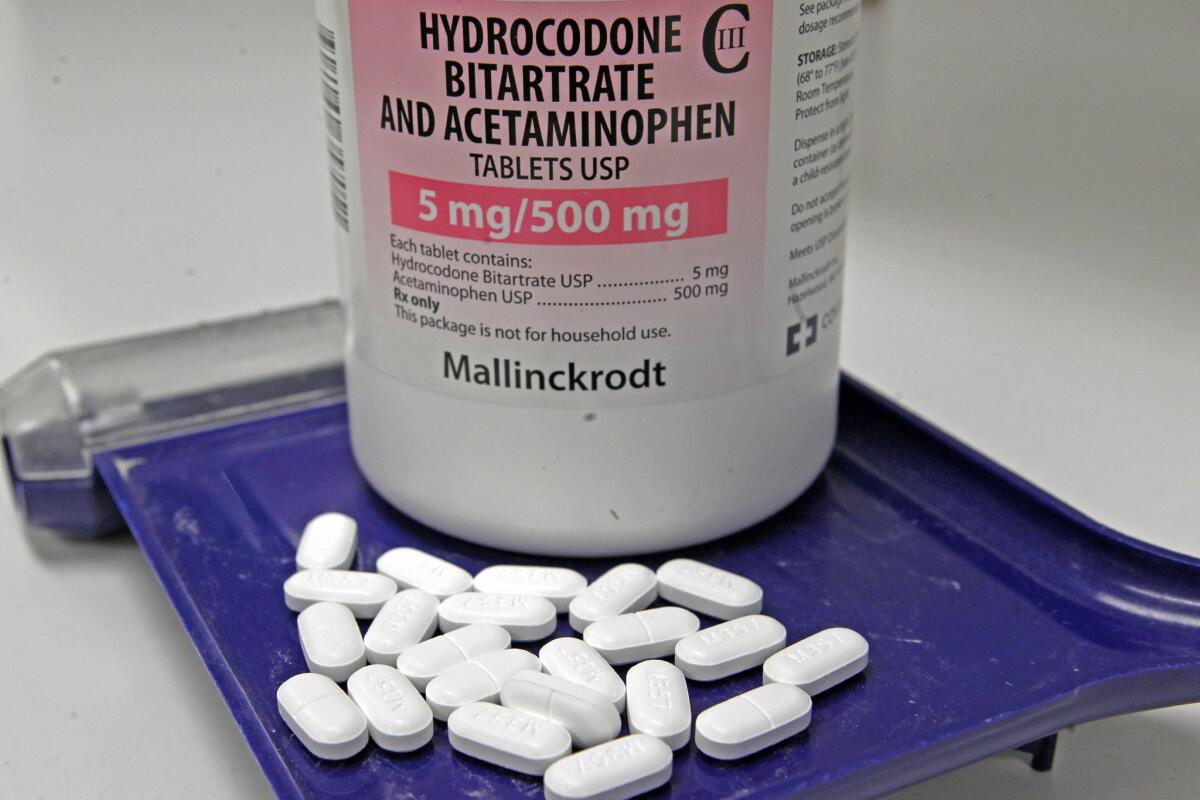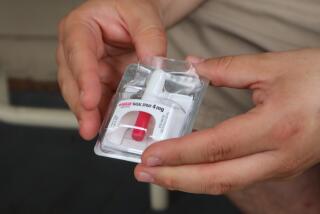Editorial: CURES bill could make a dent in California prescription drug abuse

Hydrocodone pills, also known as Vicodin.
- Share via
When California lawmakers created the CURES database to fight prescription drug abuse, they left out an important piece. Although pharmacists were required to list in the database any customers who received potentially dangerous and addictive drugs, doctors weren’t required to check those records before prescribing more pills. State Sen. Ricardo Lara (D-Bell Gardens) has a bill that would finally require doctors to do what they should have been doing all along. His colleagues should pass it.
Prescription painkillers such as hydrocodone and other opioids have provided much-needed relief to many patients with chronic pain, yet they’ve also trapped others in a devastating addiction. Deaths from opioid overdose in California have climbed steadily over the last decade; nationally, opioid painkillers accounted for more than 70% of the 23,000 pharmaceutical deaths in 2013.
The CURES database addresses only part of the problem. According to a 2013 federal survey, two-thirds of the people abusing pharmaceuticals had not been prescribed the drugs — so they wouldn’t have been listed in the database. Nevertheless, CURES can help physicians and pharmacies identify those who are pill-shopping from doctor to doctor, while helping states track down doctors who are overprescribing narcotics.
Only about 10% of those who can prescribe these drugs have even signed up to use CURES, however. The California Medical Assn., the main trade group for doctors, has resisted any mandate on its members to consult the database, arguing that the Legislature shouldn’t meddle in the practice of medicine. Besides, the group says, CURES isn’t ready yet for the avalanche of queries that such a mandate would cause.
Lara’s bill addresses the latter by delaying the requirement until the state certifies that CURES has been fully upgraded, which is expected to happen in July. As for the former concern, the bill imposes no restrictions on prescribing that state law doesn’t already impose. It simply holds doctors and other prescribers responsible for checking CURES when the potential for pill-shopping is at its highest — for example, when a patient is prescribed a dangerous drug for the first time. That’s not asking much.
The mandate to check CURES wouldn’t have teeth unless state licensing boards penalize prescribers who don’t comply. That’s a worrisome thought. A Times investigation in 2012 found that the Medical Board repeatedly failed to take action against doctors who were allegedly overprescribing drugs until patients died from overdoses. Regardless, Lara’s bill would give the board another way to guard patients and the public against those who prescribe too many dangerous medications. It could also help doctors protect themselves against unwittingly feeding the habits of resourceful drug abusers.
Follow the Opinion section on Twitter @latimesopinion and Facebook
More to Read
A cure for the common opinion
Get thought-provoking perspectives with our weekly newsletter.
You may occasionally receive promotional content from the Los Angeles Times.









